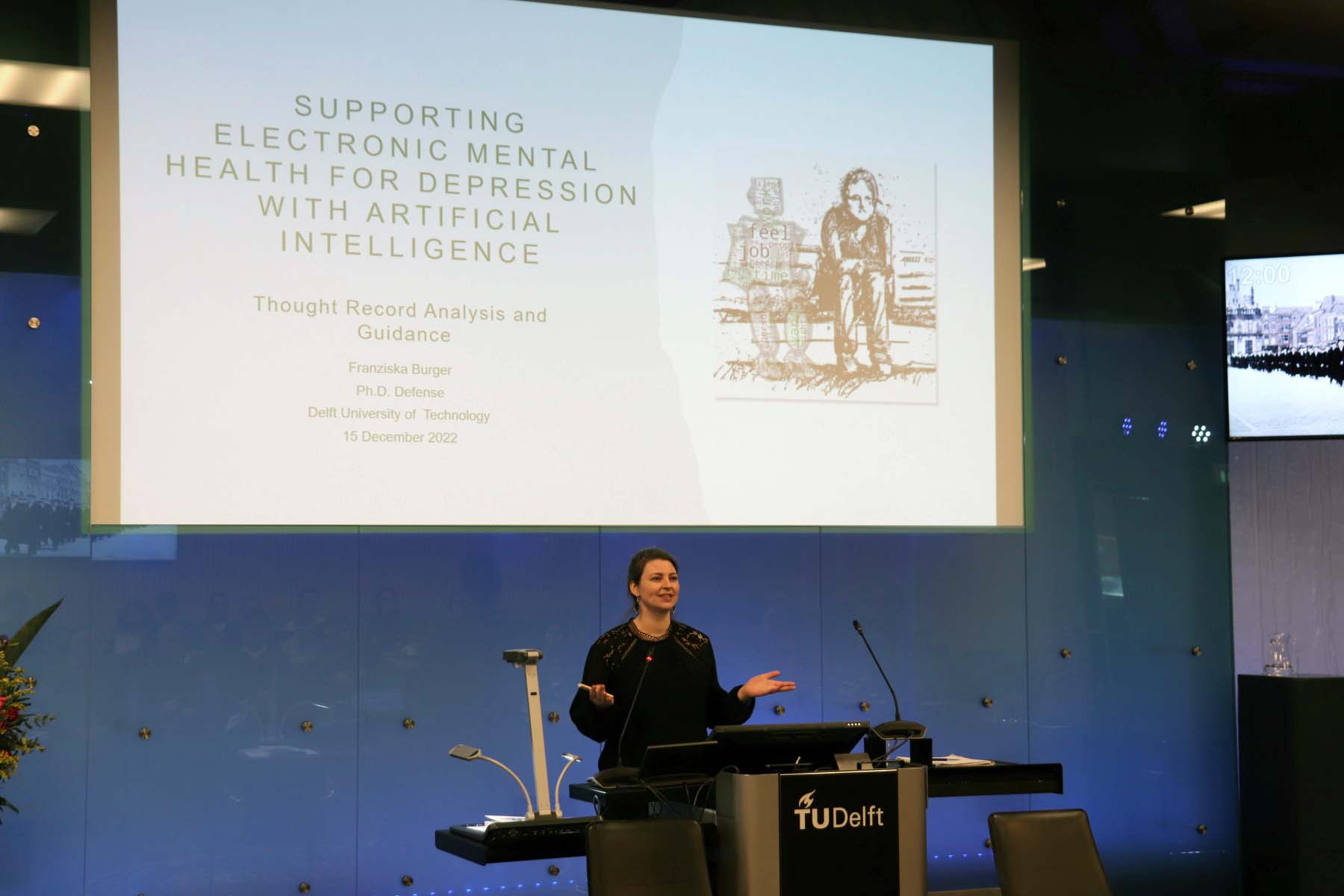Computer gives people with depression symptoms insight into their thinking patterns
Our thoughts greatly determine how we feel and behave. Thus, gaining insight into certain thought patterns is an important part of preventing and treating depression. TU Delft researcher Franziska Burger investigated how AI can support people with symptoms of depression. She developed a computer programme that analyses thought records with natural language processing, which recognises underlying patterns. This gives people with depressive symptoms better and faster insight into negative thoughts. Burger's research contributes to the use of AI technology in the development of software for the prevention and treatment of depressive symptoms. On Thursday 15 December, Burger defended her thesis 'Supporting Electronic Mental Health for Depression with Artificial Intelligence' at TU Delft.
Burger's research shows that AI can very efficiently identify core thoughts of depressed people, such as 'I am not competent', 'I am worthless' and 'I am not loved'. To do this, she trained AI to recognise the underlying thought of structured, short texts. For example, consider the combination 'I am not liked' to the core thought ‘my friend doesn't like me because he ignores me when I enthusiastically wave at him’. Understanding these unhelpful thoughts is a first step in cognitive therapy - only by recognising them can you start replacing them with healthier thoughts. Unfortunately, depressed people often have a poor ability to identify these unhelpful thoughts, but AI could start by supporting that.
As a person, you want the system to understand you intrinsically. With our research, we have now taken a step in that direction. We saw that people were very good at figuring out their core thoughts with a smart chat programme.
Franziska Burger
Although the potential is obvious, Burger noted that interactivity between user and computer systems for depression treatment has been limited to date. She based this on an extensive review of the scientific literature from 2000 to 2017. This research found that existing systems required the user to provide additional information, and even then the systems did little with the content. This set her on a course to use AI to analyse rich, textual data in a content-driven way. Burger focused on a subclinical target group. This group could serve as the basis for a possible follow-up study for people with diagnosed depression. She hopes that in the future, developers will incorporate her AI technology into their treatment or prevention systems.
Supporting Electronic Mental Health with Artificial Intelligence | TU Delft Repositories

